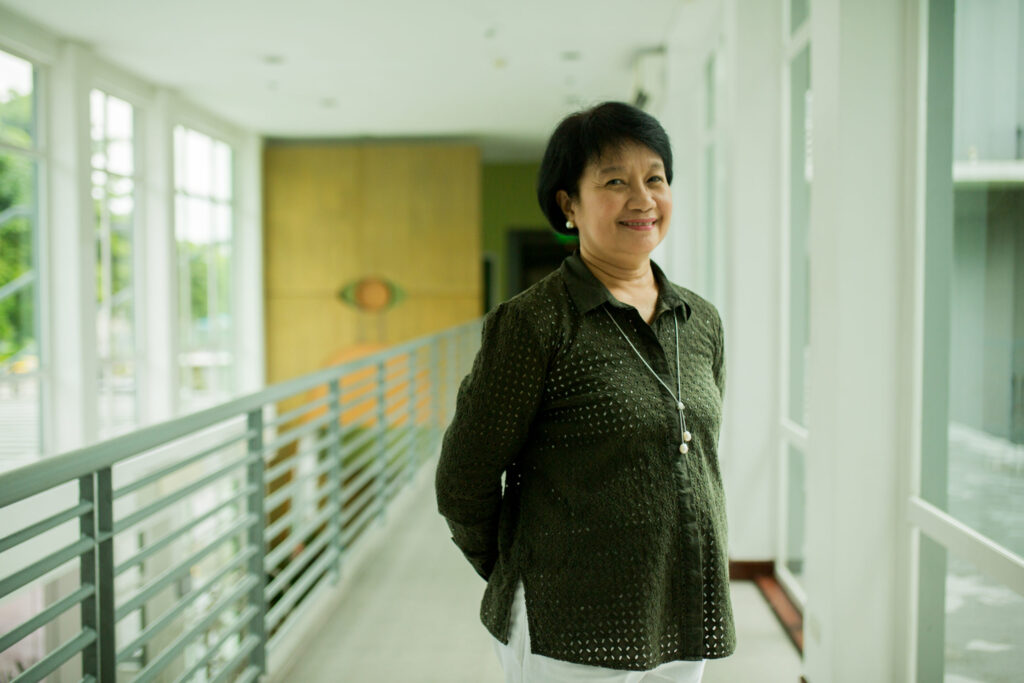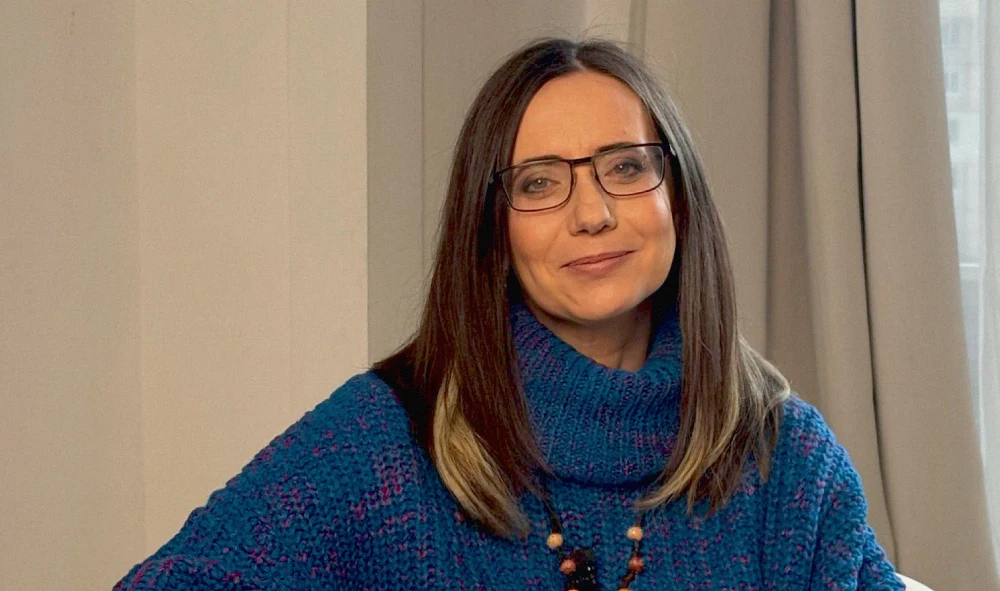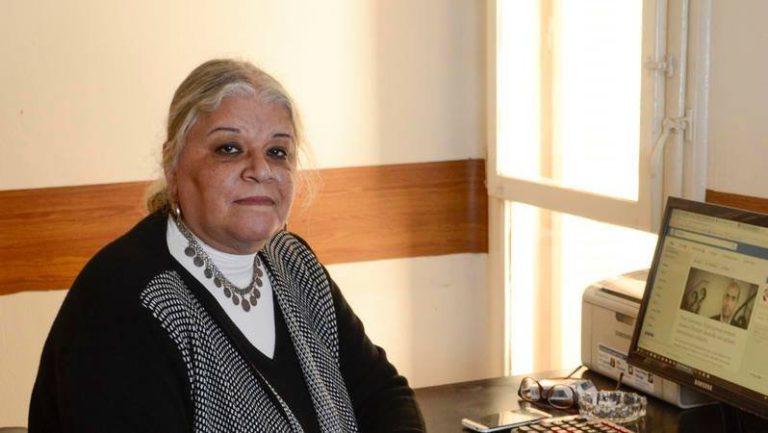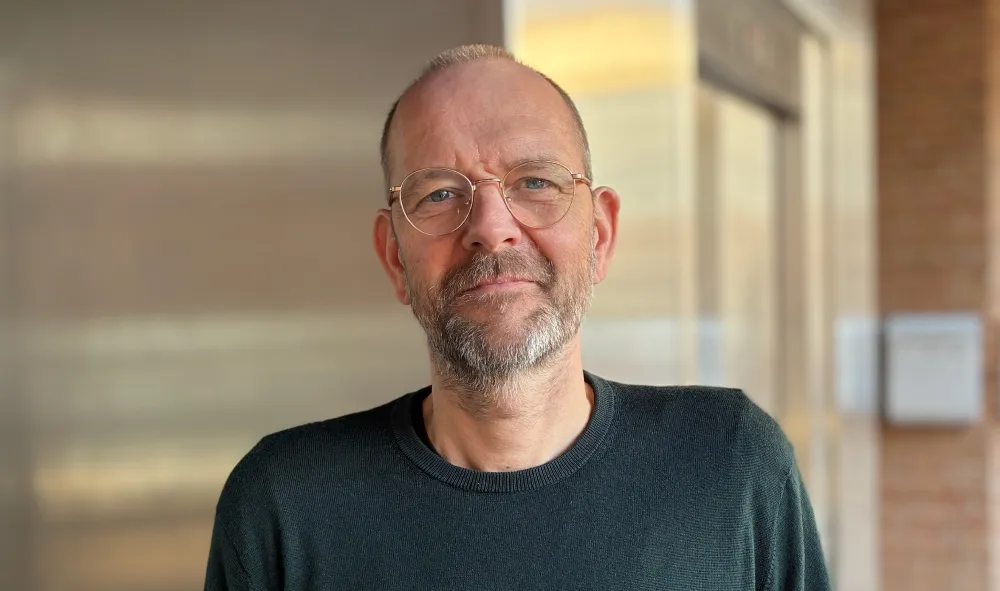DIGNITY’s EU-funded training supports the Philippines national human rights institution in monitoring prisons and preventing torture and ill-treatment. But it is not without challenges.
One day in early November 2020, DIGNITY legal advisor Kalliopi Kambanella sat down in front of her computer screen in Copenhagen to train around 35 members and staff from the Interim National Preventive Mechanism that works to prevent torture and ill-treatment in places of detention in the Philippines.
The aim of the training is to enhance the capacity of her Filipino colleagues to monitor the human rights situation in places of detention in the Philippines. But not only does the training have to be remote. The monitoring itself is, at the moment, also taking place remotely due to the global coronavirus pandemic.
DIGNITY has developed a framework to remotely monitor places of detention in times of a global pandemic.
»The pandemic poses many challenges for monitoring bodies, but monitoring is absolutely necessary at times like this. Remote monitoring offers an effective alternative but requires adaptation and creativity«, Kalliopi Kambanella explains.
Even before COVID-19, the situation in Philippine jails and prisons was deeply problematic. President Rodrigo Duterte won the 2016 election on promises of being tough on crime. As President in a US style presidential system, the President has solid backing in both the Senate and the House of Representatives for his hard-line stance on imposing public order. His campaign against illegal drugs and criminality have congested the already exceedingly crowded jails and prisons with more persons deprived of their liberty.
Extreme congestion in prisons
President Duterte’s tough-on-crime approach has led to an extreme overcrowding of Philippine jails of 534 per cent (February 2020, according to a government submission). The prison system is vastly underfunded with around one US-dollar a day per prisoner to cover food expenses.
The Philippines ratified the Optional Protocol to the UN Convention Against Torture (OPCAT) in 2012. Under this protocol each ratifying state is obliged to create a National Preventive Mechanism (NPM). The task of the NPM is to monitor the country’s places of detention and submit recommendations to prevent any forms of torture or ill-treatment.
In Denmark, for instance, the NPM consists of the Parliamentary Ombudsman, the Danish Institute for Human Rights and DIGNITY. Together the three organisations visit the places of detention on a regular basis. They report on the conditions and treatment of the persons deprived of their liberty.
Law has yet to be passed
Eight years after ratifying the OPCAT, the Philippines has still not yet passed a law establishing an NPM. In the absence of any movement on the NPM bill, in 2018 the country’s Commission on Human Rights (CHR) established an Interim National Prevention Mechanism (INPM), which operates with a Secretariat based at the CHR headquarters in Manila.
The Philippine CHR was established in the 1980s after the fall of the Marcos dictatorship. It has the status of a national human rights institute, comparable to the Danish Institute for Human Rights in Copenhagen. Before the introduction of the INPM, the Commission already performed visits to jails and prisons. These visits, however, have an investigative purpose and take place after riots, violent deaths or other incidents. In contrast, the INPM takes a proactive approach aiming to prevent torture and ill-treatment, rather than to investigate such violations.
In order to support the Philippine INPM to perform its preventive function, DIGNITY joined forces with the Philippine human rights organisation Balay Rehabilitation Center to train the Philippine monitors during the span of a three-year project, funded by the European Union.
Legal advisor Kalliopi Kambanella has worked on preventive monitoring for the NPM in her home country Cyprus for around 10 years before joining DIGNITY in Copenhagen in the autumn of 2018. There she became part of the Philippines project group. She went on her first visit to the Philippines in November 2018.
Different conditions
Visiting her first Philippine jail, she found conditions that were quite different from the European standards she was familiar with:
»It was a shock. Just the smell, the lack of air. It was extreme«, she remembers her first impression.
Kalliopi Kambanella and her colleagues from DIGNITY managed to visit the Philippines three times before the authorities put the country under a very strict lockdown on March 16th, 2020.
In the Philippines they met highly motivated members of the Philippine INPM. The INPM consists of 11 INPM members and a technical working group which functions as alternates to the INPM members. The INPM is supported by a secretariat which sits within the CHR. The INPM includes people from various professional backgrounds such as lawyers, social workers, psychologists, psychiatrists, officers of non-governmental organisations engaged in visitation of detention facilities, and, importantly, former prison officials who play a crucial role in building bridges to the prison system.
Under normal circumstances, monitoring a prison would involve a physical visit that would include a tour of the premises, interviews with detainees and members of the staff, as well as checking relevant records.
Interviews with detainees obviously pose certain challenges, simply because of the difficulty to ensure confidentiality in such congested premises. During the pandemic, direct contact with detainees is even more challenging as physical visits are not possible. Therefore, other methods had to be developed.
»When you can’t visit the prison, you need to seek information about the conditions elsewhere. For instance, you can talk to family members or lawyers of the detainees«, says Kalliopi Kambanella.
Online training
During the autumn of 2020 Kalliopi Kambanella and DIGNITY Senior Medical Advisor Brenda Van Den Bergh delivered a blended training course. The course included on-demand material and three online live sessions: The participants were a highly motivated and skilled group of monitors from the Philippine INPM, all extremely dedicated to human rights and the prevention of torture.
»It’s a good group to work with«, says Kalliopi Kambanella, adding that the training has consisted of well-prepared reading material, group work and live sessions. The participants have had the opportunity to ask questions on how to apply the remote monitoring framework in their own context.
Commissioner Leah Armamento (photo above) is responsible for the INPM at the Philippine Commission on Human Rights. She is grateful for the help that the Balay-DIGNITY project has offered.
»We are looking forward to remotely monitoring places of detention and employ the tools we have been trained in. Thanks to the training we have received, we feel confident that we are competent to visit in a preventive manner«, she explains.
The situation in jails and prisons in the Philippines has deteriorated due to the extra pressure of the pandemic on a system that was under extreme stress even before that. Riots have erupted and the need for a close monitoring of human rights violations is greater than ever under the present administration.
»The persons deprived of liberty are under almost complete isolation and the CHR has no access to the actual number of infected persons in the prisons«, Leah Armamento points out.
Good working relation
Commissioner Armamento explains that the Commission and the INPM have quite a good working relation with the prisons and their management. In this respect she differentiates between the top-level officials, who will typically be political appointees and thus loyal to the president, and career officers.
»Career officers grow in their position and continue with their daily chores. And they understand the need to live up to human rights standards. So it’s easy for us to talk to those who work in the prisons«, the Commissioner explains.
»They have to be courteous to us. And they are. Whether they are open is another thing«, she says dryly with reference to the fact that the creation of the CHR is enshrined in the Philippine Constitution and therefore an independent institution of government. Its independent and critical stance has, however, sometimes put it at odds with the other branches of government.
Josephine Lascano is the executive director of DIGNITY’s partner Balay in the Philippines and a member of the technical working group of the INPM.
At the moment she is preparing to monitor one of the so-called ‘Houses of Hope’, which are places of detention for children under 18 who are accused or convicted of various offenses, many of whom are allegedly drug related.
»We are going to use the skills DIGNITY has provided us with. We will do some triangulation in order to get information about the prison from other sources and we hope at some point to be able to follow up with a physical visit to the detention facility«, she explains.
Building a good rapport
Josephine Lascano stresses the importance of building a good rapport with the prison staff:
»Maybe in Denmark you get at straight answer if you simply ask a question to prison staff. But in the Philippines, it’s important to form a rapport to make them open up and tell you the real story. This is the art of asking questions«, she says.
Asked whether she sees the prison staff as allies or adversaries, she responds:
»We have to treat them as an ally. It is their duty to ensure the protection and welfare of those inside the jail. And we tell them: Since we are allies, you should be open to us. That will enable us to give you a better support«.
Hopefully, the pandemic will pass at some point and the physical INPM visits will resume as the main tool in ensuring that torture and ill-treatment are prevented.
The next step will be to mandate a National Preventive Mechanism by law, as it is done in other countries.
»We need to have a law that would transform the Interim NPM into a durable and effective NPM. The lawmakers, who are mostly allies of the President, seem to be not so keen about it, but we are trying our best to make it happen«, Josephine Lascano concludes.
DIGNITY’s work in the Philippines is financed by the European Union and the Danish Ministry of Foreign Affairs.
Photo: Geric Cruz





